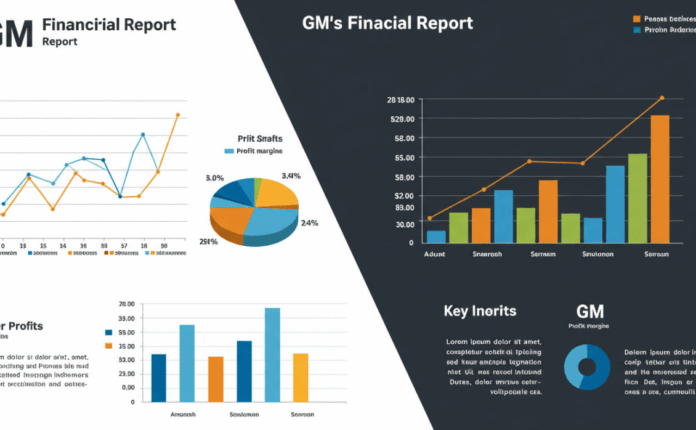Networking is more than just exchanging business cards or adding contacts on LinkedIn—it’s the art of building meaningful, mutually beneficial relationships that can propel your career or business to new heights. In today’s hyper-connected world, the ability to forge strong professional connections is a critical skill for entrepreneurs, freelancers, and corporate professionals alike. Whether you’re seeking new clients, exploring partnerships, or simply aiming to stay ahead in your industry, networking opens doors to opportunities that might otherwise remain out of reach. This article dives deep into why networking is a game-changer for business success, offering practical insights and strategies to help you master this essential skill.
Why Networking Matters in Business
Unlocking Opportunities Through Relationships
Networking is often the key that unlocks hidden opportunities. A single conversation at a conference, a thoughtful follow-up email, or a casual coffee meeting can lead to partnerships, job offers, or game-changing collaborations. Unlike traditional marketing or advertising, networking relies on personal connections, which are far more effective at building trust and credibility. When you connect with someone on a human level, they’re more likely to remember you, recommend you, or collaborate with you when the right opportunity arises.
Consider the story of Sarah, a freelance graphic designer who landed a major client simply by attending a local industry meetup. During a casual chat, she struck up a conversation with a startup founder who was impressed by her passion and expertise. A few weeks later, that connection led to a contract that doubled her annual revenue. This is the power of networking—it creates serendipitous moments that can transform your professional trajectory.
Building a Support System
Beyond immediate opportunities, networking helps you build a robust support system. The business world can be unpredictable, and having a network of peers, mentors, and advisors can provide invaluable guidance during challenging times. Whether you need advice on navigating a tough market, feedback on a new product idea, or simply a sounding board for your frustrations, your network can offer perspectives and solutions that you might not find on your own.
Moreover, a strong network can act as a safety net. If you lose a job or face a business setback, your connections can help you bounce back by sharing leads, offering referrals, or even collaborating on new ventures. In essence, networking isn’t just about what you can gain—it’s about creating a community that supports everyone involved.
Strategies for Effective Networking
Attend Industry Events with Purpose
Industry events, conferences, and workshops are goldmines for networking, but showing up isn’t enough—you need a strategy. Before attending an event, research the attendees, speakers, or companies that will be present. Identify key individuals you’d like to connect with and prepare thoughtful questions or conversation starters. For example, instead of asking, “What do you do?” try something specific like, “I saw your recent project on [specific topic]—what inspired that approach?” This shows genuine interest and sets the stage for a meaningful conversation.
At the event, focus on quality over quantity. It’s better to have a few deep, memorable conversations than to collect a stack of business cards without building rapport. After the event, follow up promptly with a personalized message that references your conversation and suggests a next step, like grabbing coffee or collaborating on a small project.

Leverage Online Platforms
In the digital age, networking isn’t limited to in-person events. Platforms like LinkedIn, Twitter, and industry-specific forums allow you to connect with professionals worldwide. To make the most of these platforms, optimize your profile to reflect your expertise and personality. Share valuable content—such as articles, insights, or case studies—that positions you as a thought leader in your field.
When reaching out to new connections online, avoid generic messages. Instead, craft personalized notes that explain why you’re reaching out and how you can add value to their work. For instance, if you’re connecting with a marketing professional, you might share an article you wrote about innovative marketing strategies or offer to discuss a trend you both care about. This approach makes your outreach feel authentic and increases the likelihood of a response.
Nurture Relationships Over Time
Networking isn’t a one-and-done activity—it’s about building long-term relationships. After making a new connection, stay in touch by checking in periodically. This could be as simple as sending a quick email to share an interesting article, congratulating them on a recent achievement, or inviting them to an industry event. The goal is to keep the relationship alive without being overly pushy.
One effective way to nurture relationships is by offering value without expecting immediate returns. For example, if you know someone in your network is looking for a web developer, connect them with a talented professional you trust. These small acts of generosity build goodwill and make others more likely to reciprocate when you need help.
Overcoming Common Networking Challenges
Dealing with Social Anxiety
For many, the idea of walking into a room full of strangers can be daunting. If networking makes you nervous, start small. Attend smaller, low-pressure events like local meetups or virtual webinars where you can ease into conversations. Practice a short elevator pitch about yourself to boost confidence, and focus on listening rather than talking. People love to share their own stories, and being a good listener can make you a memorable connection.
Another helpful tactic is to bring a friend or colleague to events. Having a familiar face can make the environment feel less intimidating, and you can take turns introducing each other to new people. Over time, as you gain more experience, networking will feel more natural.
Avoiding the “Sales Pitch” Trap
One of the biggest networking mistakes is coming across as overly transactional. If you approach every conversation with a sales pitch, you risk alienating potential connections. Instead, focus on building genuine relationships by showing curiosity about others’ work and goals. Ask open-ended questions, share relevant insights, and let the conversation flow naturally. If an opportunity to pitch your services arises, it should feel like a natural extension of the discussion, not a forced agenda.
The Long-Term Benefits of Networking
Staying Ahead in a Competitive Market
In fast-paced industries like tech, staying relevant requires constant learning and adaptation. Networking keeps you in the loop about emerging trends, technologies, and market shifts. By connecting with innovators and thought leaders, you gain access to insights that can give you a competitive edge. For example, a casual conversation with a fellow entrepreneur might reveal a new tool or strategy that transforms your business operations.
Creating a Personal Brand
Your network also plays a crucial role in shaping your personal brand. When you consistently show up, add value, and build trust, your reputation grows. Over time, people in your network will associate you with expertise, reliability, and professionalism—qualities that can lead to referrals, speaking opportunities, or leadership roles. A strong personal brand, backed by a supportive network, can set you apart in any industry.
FAQs
Why is networking important for small business owners?
Networking is crucial for small business owners because it helps them find clients, partners, and mentors who can support their growth. By building relationships, they gain access to opportunities, resources, and insights that can help them compete in a crowded market.
How can introverts network effectively?
Introverts can network effectively by starting with smaller events, preparing conversation starters, and focusing on one-on-one interactions. Online platforms like LinkedIn also provide a low-pressure way to connect and build relationships over time.
What’s the best way to follow up after a networking event?
Send a personalized email or message within 48 hours of the event. Reference something specific from your conversation, express appreciation for the interaction, and suggest a next step, like meeting for coffee or sharing a resource.
How often should I network to see results?
Consistency is key. Aim to attend one or two events per month and follow up with new connections regularly. Even small, consistent efforts—like sharing an article or checking in every few months—can yield significant results over time.
Can networking help with career changes?
Absolutely. Networking can connect you with professionals in your desired field, provide insights into new industries, and lead to referrals or job opportunities. It’s one of the most effective ways to navigate a career transition.




Ever stop to think how much you’re spending on marked-up CPMs for Connected TV ads?
If you’re using “premium” audience segments without verifying who you’re actually reaching, that money is likely feeding someone else’s family.
No pressure. Here’s the site if you’re open to see a revolutionary vision for digital advertising
topshelfaudience.com using real-time Intent data from an Integration in our platform to Lotame.com. You can reach me at [email protected] or 843-720-7301. And if this isn’t a fit please feel free to email me and I’ll be sure not to reach out again. Thanks!
visit BitcoinPlatform.com
8awz24
Loved the UI of your website!
We offer scalable software development, mobile app development, and tech team extension.
Let’s talk to support your tech needs.
https://bit.ly/3H9OujU
hotanal.com
visit BitcoinPlatform.com
h2907l
Ever stop to think how much you’re spending on marked-up CPMs for Connected TV ads?
If you’re using “premium” audience segments without verifying who you’re actually reaching, that money is likely feeding someone else’s family.
No pressure. Here’s the site if you’re open to see a revolutionary vision for digital advertising
topshelfaudience.com using real-time Intent data from an Integration in our platform to Lotame.com. You can reach me at [email protected] or 843-720-7301. And if this isn’t a fit please feel free to email me and I’ll be sure not to reach out again. Thanks!